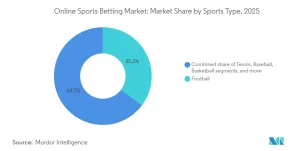
Let’s be honest—online casinos have always had a bit of a trust problem. Players wonder: Are the games fair? Is my money safe? Can I really get paid out quickly? Blockchain technology is stepping in to answer those questions—and it’s changing the game entirely.
The Trust Revolution: Why Casinos Need Blockchain
Traditional online casinos rely on centralized systems. That means one company controls the servers, the payouts, and—let’s face it—the odds. Blockchain flips the script. Here’s how:
- Transparency: Every transaction is recorded on a public ledger. No more wondering if the roulette wheel is rigged.
- Security: Decentralization means hackers can’t just breach one server and drain accounts.
- Speed: Forget waiting days for withdrawals. Crypto transactions settle in minutes.
Provably Fair Gaming: No More Blind Faith
Ever heard the term “provably fair”? It’s blockchain’s killer feature for gamblers. Here’s the deal: players can verify every bet’s outcome using cryptographic proofs. No need to trust the casino—math doesn’t lie.
Imagine a blackjack hand where you can check—right then and there—if the dealer’s cards were truly random. That’s the power of blockchain.
How Provably Fair Works (Without the Tech Jargon)
Think of it like a sealed envelope. Before you place a bet:
- The casino generates a random result and “locks” it with a unique code.
- You place your bet.
- After the game, the casino reveals the code—proving the result was set before you played.
Simple, right? And impossible to cheat.
Cryptocurrencies: Faster, Cheaper, Borderless
Credit card fees. Bank delays. Country restrictions. Traditional payment methods are a headache. Crypto? Well, it’s like swapping cash under the table—but legally and tracked on the blockchain.
| Payment Method | Processing Time | Fees |
| Credit Card | 1-3 days | 3-5% |
| Bank Transfer | 3-5 days | $10-$30 |
| Crypto (e.g., Bitcoin) | 10-30 minutes | ~1% |
Plus, cryptocurrencies open doors for players in regions where online gambling is restricted or banking is unreliable.
Smart Contracts: The Invisible Dealers
Here’s where things get really futuristic. Smart contracts—self-executing code on the blockchain—can automate payouts, bonuses, even game rules. No human middleman means:
- Instant payouts: Hit a jackpot? The smart contract sends crypto to your wallet before you can even celebrate.
- No more bonus disputes: Terms are written in code. If you meet the wagering requirements, the money’s yours—no arguing with customer support.
A Real-World Example: Decentralized Casinos
Sites like Bitcoin Poker or Ethereum Dice run entirely on smart contracts. You deposit crypto, play, and cash out—all without a central company controlling the funds. It’s like a vending machine for gambling: put in money, get a result, no humans involved.
The Challenges (Because Nothing’s Perfect)
Blockchain isn’t a magic bullet. Some hurdles remain:
- Volatility: Crypto prices swing wildly. Winning 0.1 Bitcoin today might be worth half next week.
- Regulation: Governments are still figuring out how to tax—or outright ban—crypto gambling.
- User experience: Let’s be real—setting up a crypto wallet isn’t as easy as using PayPal.
What’s Next? The Future of Blockchain Casinos
We’re already seeing hybrid models—traditional casinos adding crypto options. But the real innovation? NFT-based gaming. Imagine owning a rare virtual poker table or a unique slot machine that pays you royalties when others use it. The line between gambling and investing is blurring.
One thing’s for sure: blockchain is making online casinos more transparent, efficient, and—dare we say—fair. Whether that’s enough to win over skeptics? Well, the house doesn’t always have the final word anymore.







